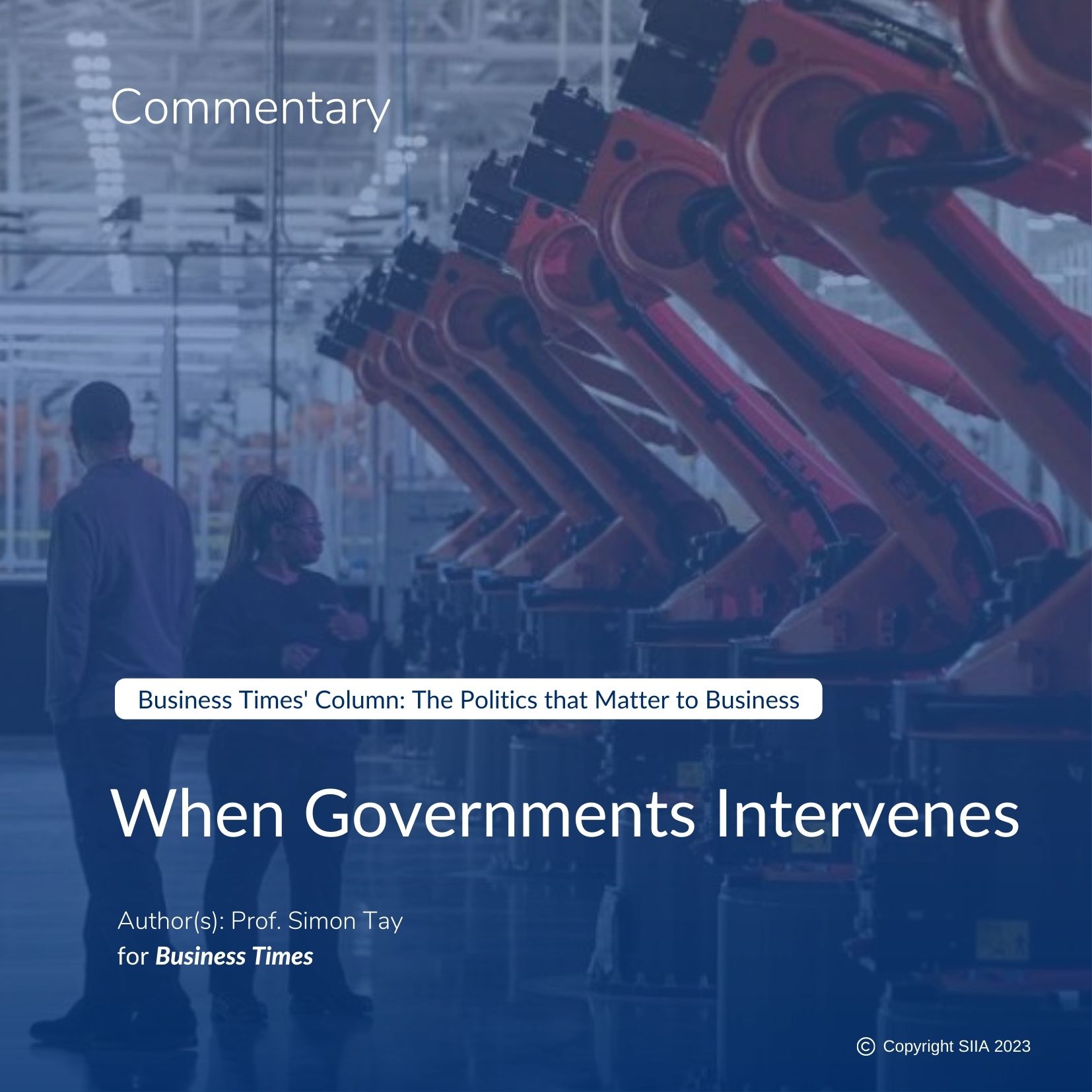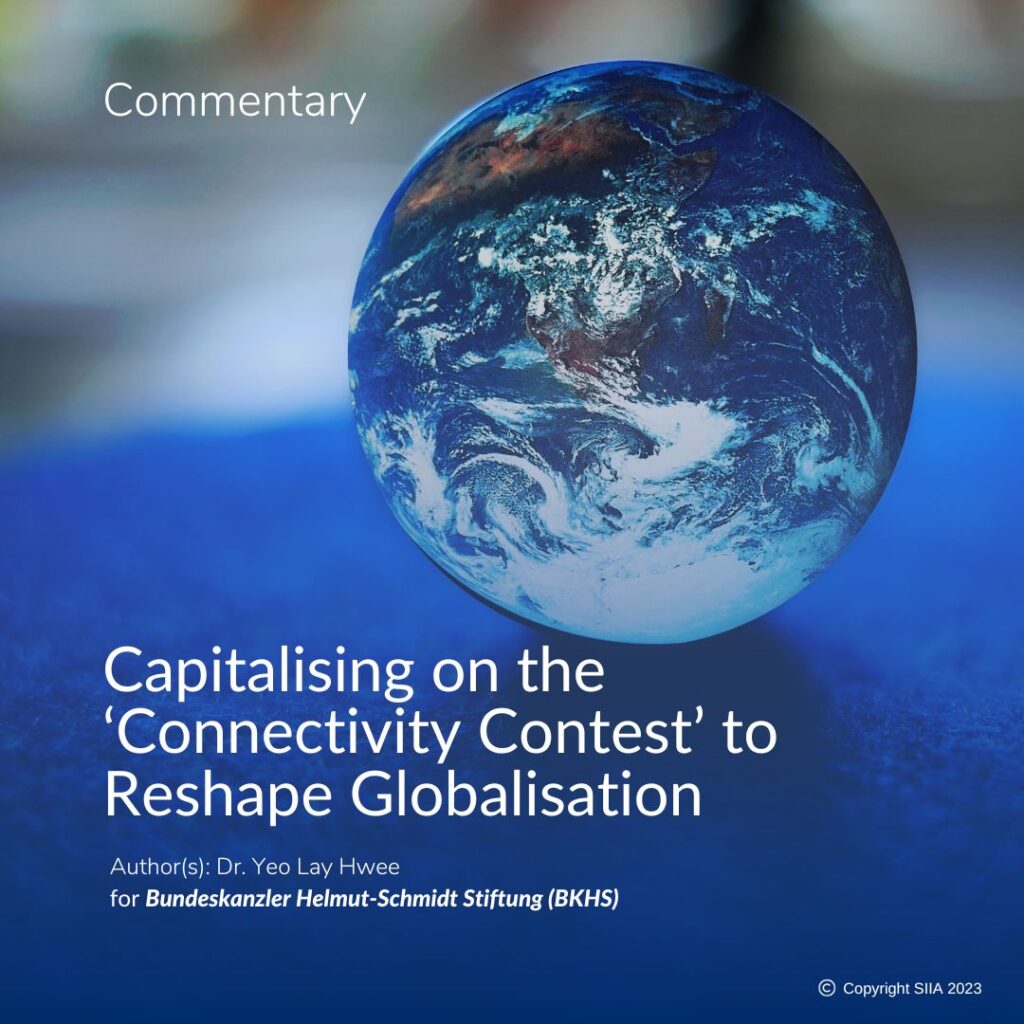Interventions by governments are increasingly impacting business. Developing countries are usually perceived as higher risk, including some in our region. But now the USA and other countries are acting with fewer constraints, and for new reasons.
The pandemic re-emphasized concerns about security and scarcity. Citizens expect governments to respond in times of real and urgent need. Moreover, slogans of narrow “me first” nationalism are re-energized following Donald Trump’s presidency. National champions and state-owned enterprises can find favour to the detriment of others.
Every intervention may seem different in purpose. Yet they come to a broader conclusion: officials around the world today are more ready to intervene in what they used to leave to market competition.
Why and what can companies do?
Good Reason, Mixed Results
Often good reasons are given for government interventions. Yet these can disguise unfairness and even mixed motives. Consider the Biden administration’s ambitious push for climate action.
As a key part of the wider Inflation Reduction Act passed last year, some US$369 billion will be provided to incentivise green efforts across economic sectors and across the different states. Much of this is pro-American.
Electric vehicles, for instance, only qualify if critical mineral and battery components are US-made. An exception will be countries with which the USA has a free trade agreement .
The European Union does not. Its leaders believe that the American tax and other measures create unfair, market distortions. They have promised to respond with “action to rebalance the playing field”.
The USA is of course not only one who intervenes like this.
Indonesia for instance is trying to leverage its rich deposits of nickel to ensure that companies manufacture the electric batteries inside the country, rather than exporting the mineral elsewhere. This is not without reason but is akin to what the Americans are doing.
China too has intervened in high profile ways against some of the largest technology companies. While one might expect such actions by an officially Communist and state-centric system, past policies had given much leeway for the private sector to grow.
With the new cabinet to be appointed shortly, many will be watching for signals on how Beijing will govern the markets, going forward.
What can be Done
Controversies and government interventions are not unknown. In a past era, however, there could be reference to international rules and the World Trade Organization. Its dispute settlement mechanism and Appellate Body, while not without flaws, could adjudicate between right and wrong and discipline government interventions.
No longer. Over the last years, the USA – despite repeated calls by most other governments — has actively undermined the WTO by blocking new appointments to replace retiring Appellate Body members. The system currently lacks finality and there is little recourse. Most just try not to cross the USA or China.
Some companies lobby for exceptions and carve outs. For instance, in the American chip legislation, temporary exceptions have been given to a number of companies, including Samsung from South Korea and TSMC of Taiwan.
Another approach some companies take is to simply to avoid that country. But if the market potential is great or the country is has essential resources, avoidance too has a cost.
Perhaps the essential response is to look broader and further ahead to read the trends and anticipate the possible shifts and emerging risks. This is especially when global conditions turn or governments change, ushering in new officials and possibly new policies.
In our region, more than a few key countries will see changes with a new government in Malaysia and upcoming elections In Thailand, Taiwan and Indonesia. Changes of personnel in China and Vietnam also bear watching. These political changes can make a country more appealing and stable for foreign investors, or have the reverse effect.
Companies and investors will require a new awareness and new capabilities. Many are already giving more focus on government relations to improve communication and interaction with regulators. Some companies also turn to external parties — advisory boards, political risk firms and think tanks — to review wider trends and to help them think through their strategies.
The key is for companies to help governments have the fullest appreciation of the policy impacts of their actions and be able to seek a balance between legitimate policy priorities with the negative impacts on business. To do so, efforts are needed to develop links within a sector even with commercial competitors, and across its supply chain.
As more governments assert themselves more often, companies are waking up to how politics are impacting businesses directly. The best companies will look to develop new insights and capabilities to protect their interests and also as a competitive advantage.
Simon Tay is chairman of the Singapore Institute of International Affairs (SIIA).
This article is part of a series of SIIA column on “The Politics that Matter to Business” for The Business Times. It was first published on 7 March 2023.




